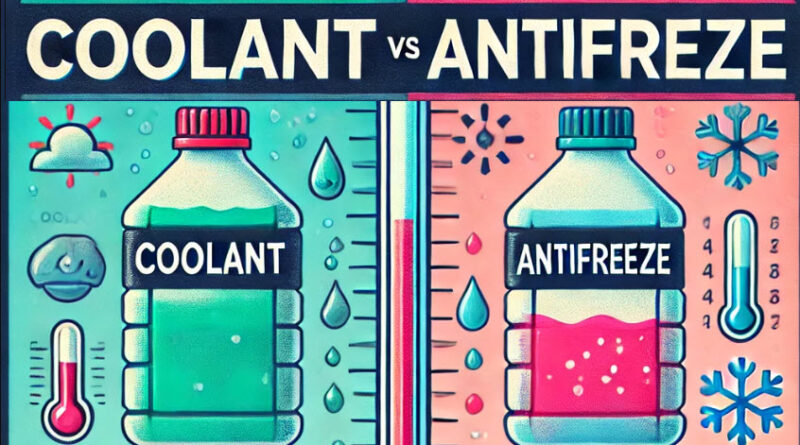Coolant vs Antifreeze What’s the Difference
Understanding the difference coolant vs antifreeze what’s the difference can help you maintain your vehicle properly and avoid costly repairs. When it comes to your car’s engine, keeping it at the right temperature is crucial. Two terms that often come up in this context are “coolant” and “antifreeze.” Though sometimes used interchangeably, they aren’t exactly the same. Moral of the story here they both mean the same thing, but just sounds different.
What is Coolant?
Coolant is a fluid that circulates through your car’s engine, absorbing heat and preventing the engine from overheating. The coolant is typically a mixture of water and antifreeze, usually in a 50/50 ratio. This combination allows the coolant to perform effectively under various temperature conditions, protecting the engine from both overheating and freezing.
Coolant plays a vital role in regulating the engine’s temperature, especially during extreme weather. It flows through the engine and absorbs heat, which is then dissipated through the radiator. Without coolant, your engine would quickly overheat, leading to potential damage.
What is Antifreeze?
Antifreeze is a chemical solution, typically made from ethylene glycol or propylene glycol, that is mixed with water to create coolant. The primary function of antifreeze is to lower the freezing point of the water in your engine’s cooling system and raise its boiling point. This ensures that the fluid doesn’t freeze in cold weather or evaporate in hot conditions, both of which could lead to severe engine damage.
Antifreeze also contains additives that protect the engine and cooling system components from corrosion, rust, and scaling. These protective properties make antifreeze a critical ingredient in the coolant mixture, extending the life of your engine and its parts.
Key Differences Between Coolant and Antifreeze
- Composition:
- Coolant: A mixture of water and antifreeze.
- Antifreeze: A concentrated chemical solution, often ethylene or propylene glycol, mixed with water to create coolant.
- Function:
- Coolant: Regulates engine temperature, preventing overheating and freezing.
- Antifreeze: Lowers the freezing point and raises the boiling point of the coolant, preventing the water from freezing or evaporating.
- Usage:
- Coolant: Used year-round to maintain optimal engine temperature.
- Antifreeze: Essential in cold climates to prevent the cooling system from freezing.
- Additives:
- Coolant: Contains a mix of antifreeze and water, along with other additives.
- Antifreeze: Includes corrosion inhibitors and other chemicals to protect the engine.
Why Both Are Essential: Moral of the story here they both mean the same thing, but just sounds different.
Your vehicle’s cooling system relies on both coolant and antifreeze to function properly. The coolant keeps your engine operating at the right temperature, while antifreeze ensures the coolant remains effective in extreme temperatures. Without the right mix of these fluids, you risk engine overheating, freezing, and corrosion, leading to potentially expensive repairs.
When to Check and Replace Coolant
It’s essential to regularly check your vehicle’s coolant level and condition, especially before extreme weather changes. Most manufacturers recommend flushing and replacing the coolant every 30,000 to 60,000 miles, but this can vary depending on your vehicle and driving conditions. Always refer to your vehicle’s owner’s manual for specific guidelines.
Coolant and antifreeze are both crucial to your car’s cooling system, but they serve slightly different purposes. Understanding the role each plays will help you maintain your vehicle better, ensuring it runs smoothly in all weather conditions. Regular checks and timely replacement of your coolant mixture can prevent engine damage and keep your car on the road longer.
Buying a used VW. Buying used vauxhall, BMW, Jaguar, Ford, Volvo, Range rover, Bentley, Aston Martin, Porsche, Ferrari, Lamborghini, Maserati, Hyundai, Tesla, Honda, Pagani

